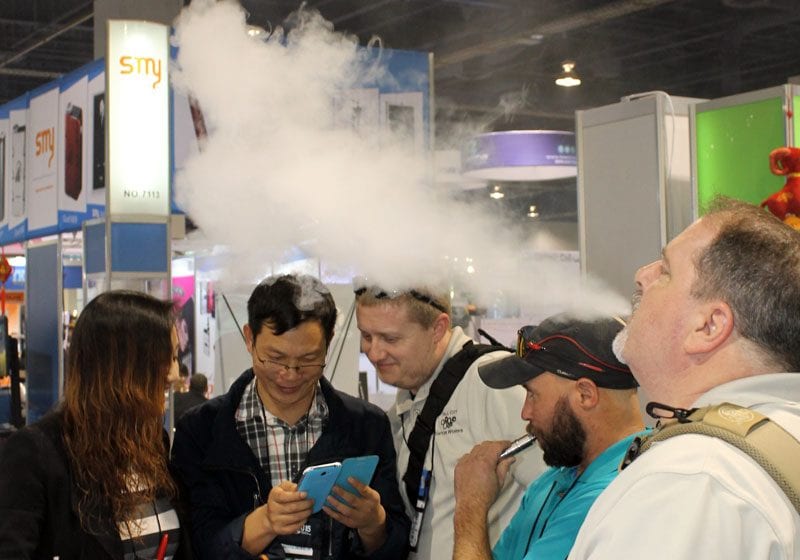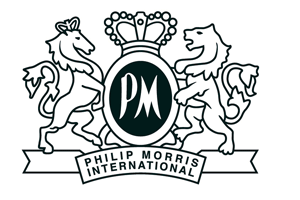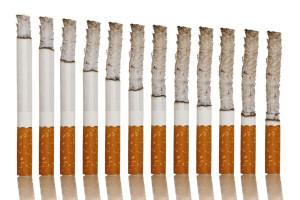Philip Morris International’s cigarette shipment volume during the 12 months to the end of December, at 740,315 million, was down by 2.8 percent on that of the 12 months to the end of December 2017, 761,926 million.
Cigarette volume was up by 4.0 percent from 171,600 million to 178,469 million in the company’s South and Southeast Asia region, but down in its other regions: by 4.1 percent from 187,293 million to 179,622 million in its EU region; by 8.9 percent from 119,398 million to 108,718 million in its Eastern Europe region; by 0.1 percent from 136,759 million to 136,605 million in its Middle East and Africa region; by 10.4 percent from 62,653 million to 56,163 million in its East Asia and Australia region; and by 4.1 percent from 84,223 million to 80,738 million in its Latin America and Canada region.
The company said that the fall in its cigarette shipment volume had partly reflected the impact of out-switching to heated tobacco units, largely from premium and mid-price cigarette brands. Marlboro shipments were down by 2.2 percent from 270,336 million to 264,423 million.
Heated tobacco unit shipment volume during the 12 months to the end of December, at 41,372 million was increased by 14.2 percent on that of the previous 12 months, 36,226 million. Heated tobacco unit volume was down by 17.9 percent from 32,729 million to 26,866 million in the company’s East Asia and Australia region, but increased by more than 100 percent in each of its other regions where these products are available: from 1,889 million to 5,977 million in the EU region; from 674 million to 4,979 million in its Eastern Europe region; from 907 million to 3,403 million in its Middle East and Africa region; and from 27 million to 147 million in its Latin America and Canada region.
Cigarette and heated tobacco unit shipment volume during the 12 months to the end of December, at 781,687 million, was down by 2.1 percent on that of the previous 12 months, 798,152 million. Combined shipments were increased by 4.0 percent from 171,600 million to 178,469 million in the company’s South and Southeast Asia region and by 1.7 percent from 137,666 million to 140,008 million in its Middle East and Africa region. But they were down by 1.9 percent from 189,182 million to 185,599 million in its EU region; by 5.3 percent from 120,072 million to 113,697 million in its Eastern Europe region; by 13.0 percent from 95,382 million to 83,029 million in its East Asia and Australia region; and by 4.0 percent from 84,250 million to 80,885 million in its Latin America and Canada region.
PMI said that, ‘excluding the net impact of estimated distributor inventory movements of approximately 16.6 billion units, due primarily to heated tobacco unit inventories in Japan, reflecting unfavorable cigarette and heated tobacco unit inventory movements of approximately 0.4 billion and 16.2 billion units, respectively, PMI’s total shipment volume was flat.
In announcing the results, CEO André Calantzopoulos said PMI had closed out a challenging year with a robust financial and strategic performance across the business. “Excluding inventory movements largely associated with heated tobacco unit volume in Japan, our total volume variance was flat – our best annual performance since 2012 – underpinned by a near doubling of global in-market sales of heated tobacco units,” he said.
“We grew our international market share by 0.5 points to reach 28.4 percent, and maintained a stable share of the cigarette category, highlighting our ability to successfully manage our transition to reduced-risk products.
“Our total net revenues were driven by an exceptional cigarette pricing variance of 7.6 percent and a strong contribution of more than $4 billion from our smoke-free products, despite the impact of the inventory adjustments. Our operating income was essentially flat, excluding currency, primarily reflecting increased investment behind our reduced-risk product portfolio. Our robust, currency-neutral double-digit adjusted EPS performance was assisted by a lower effective tax rate and interest expense.
“Thanks to the tremendous efforts of our employees around the world, and significant investments in portfolio development and organizational capabilities, including a state-of-the-art digital infrastructure to fuel our expansion, we believe we have laid the foundation for an even better performance in 2019. The underlying strength of our combustible tobacco business remains intact and our reduced-risk products are the catalysts to accelerate our business growth and secure the long-term future of our company and the sustainability of our earnings and dividend growth.”







